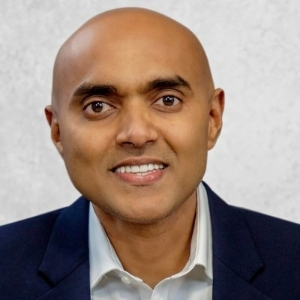Title : Cuffless blood pressure monitoring using multiple artificial intelligence models
Abstract:
In the U.S., every year, about 800,000 people die due to cardiovascular diseases (CVD) or diseases related to the heart and blood vessels. Of those 800,000, 650,000 deaths were related to the heart, and 150,000 were related to blood vessels. To put it in another perspective, every 33 seconds, someone dies from CVD. In addition to deaths, one in every nine American adults has been diagnosed with heart disease. Therefore, heart disease is the number one non-communicable disease the population faces. World Health Organization says 80% of premature CVD-related events are preventable by checking and controlling CVD risk factors. The most common risk of CVD is high blood pressure (BP) or hypertension when systolic blood pressure is over 130 mmHg and diastolic blood pressure is over 80 mmHg. One in two people has hypertension in the US, and about 46% of those who have hypertension are unaware of having hypertension. One in five with hypertension can manage it with lifestyle changes alone; others do so with medications. To detect and control hypertension, one should monitor it regularly, at least once or twice a day, in their home environment. A study found available BP monitors vary in accuracy between 4 mmHg and ten mmHg.
Having false BP measurements could lead to undesirable outcomes. For example, a 5-mmHg incorrect measurement could overestimate BP in twenty-seven million or underestimate BP in twenty-one million people in the US, leading to either unnecessary medications or neglect of treatment, resulting in risky CVD outcomes. In addition to accuracy issues, widely available BP monitors are cuff-based, and they come with many useability challenges; for instance, older adults (the most high-risk population) need help to use them properly. To address the challenges of cuff-based BP monitors, cuffless BP monitors are promoted in literature as a viable solution. However, cuffless BP monitors are not widely available in the market, and available devices are individualized by regular recalibration with a cuff-based monitor. This research aims to eliminate regular cuff-based calibration from cuffless BP monitoring with an AI model capable of measuring BP in general, which could then improve the ease of use or user experience to be a viable solution to promote broad adoption of regular BP monitoring to deliver better heart health. The proposed research includes testing multiple AI models using multiple data features extracted from photoplethysmography (PPG), lead-1 electrocardiogram (ECG), body mass index (BMI), gender, and age.
Audience Take Away
- How are PPG and ECG related to blood pressure?
- How to process PPG and ECG signals?
- Regulations related to blood pressure meters.
- How to implement an AI/ML model?
- How to test the accuracy of the AI/ML model?



